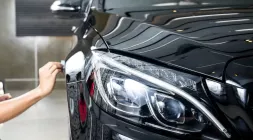How to Keep Your Car Running Like New
Check out to know tips on how to keep your car on its optimal performance.
They say all good things must come to an end. However, that doesn’t mean you can use this as an excuse to eventually let your car run down its quality and performance. Car prices are soaring higher and higher every year and it looks like there’s no stopping it. There are new features, new designs and new trends every time each manufacturer releases a new unit to compete for sales in the market. Although it may seem enticing to follow the trend in the vehicle industry, not all of us are blessed with the financial capability to do so.
If you find your current vehicle dependable and efficient, then there’s no reason for you to get a new one if you really don’t need to. Instead, why not keeps your car running like the first time you bought it? It may sound like such an impossible feat, but that’s before you make it possible (and before you adhere to our tips later on). All you need is the determination and commitment in following our advice from Philcarnews.com, so you can keep your car running like a new engine for longer.

If you find your current vehicle dependable and efficient, then there’s no reason for you to get a new one if you really don’t need to
1. Stick to Your Manufacturer’s Suggested Maintenance Routine and Schedule
Your manual is there for a reason and it’s not just to teach you how to work the AC. Most of the company’s suggestion regarding post-purchase care and maintenance is elaborated there for you to read. Though as obvious as this tip may seem, there aren’t really a lot of people who allow time to read their manuals. Instead, they just assume that the car is good for driving and if something goes wrong, take it to the mechanic and it should be all good to go again. This habit is just another way of saying “I’ll start to take care of it when it’s at its worst”.
Make sure you stick to the indicated time frame of maintenance routines like oil change and tire rotation according to the manual. The manufacturers, regardless of what brand and company, have run your car on dozens of tests about thousands of times to make sure they’re the best quality they can provide. It’s safe to say that the manufacturers know their product best and therefore have the most relevant and trusted input in your car maintenance routine schedules.
2. Take a Peak at the Fluid Levels and Tire Pressure Every Now and Then
Doing both are very easy tasks but not a lot of people have 10 minutes to spare on a busy day. However, if you don’t want to end up with a defective car, you might want to start making this a habit or even a priority.
2.1. For the engine:
Start by letting the engine cool off to avoid getting burnt and hurting yourself. The best time to do this is after getting home from work. Park it in the garage, let the engine cool while you take a rest or attend to your family and then come back when the engine is cooled. Then use a rag to hold on to your oil cap and twist it open to get the dipstick. Use your rag to wipe any oil off and dip it again to see the current oil level. If it’s too low, top it off and put the cap back on. Don’t forget to inspect the other elements in the engine as well:
-
The power steering fluid level should also be at its optimum level.
- The radiator overflow reservoir level needs to be checked as well.
- Check the brake cylinder reservoir.
- Take a visual check-up at the air filters.
- Run your hands on the hoses and belts and check for signs of wear and tear.

Don’t forget to inspect the other elements in the engine like the power steering fluid, radiator overflow, and cylinder reservoir
2.2. For the Tires
Check if each tire has the recommended psi as indicated in your manual. Use pressure gauge on all tires to immediately identify if any of the tires can be a cause for a problem in the future. Filling the tires with appropriate air pressure is a big deal when it comes to extending their lifespan. It not only avoids tire blowouts but also keeps your other tires from problems like uneven tire wear and scalloping.
3. Don’t Drive Off Immediately
This tip applies to almost all vehicles and even motorcycles. Once you turn off the engine and park the car for let’s say 4 hours, your vehicle’s engine would go “cold”. The term “cold” here means that there would be no more oil lingering around the moving parts to lubricate it. It would have all gone into the oil pan still waiting for the engine to roar.
Now once you start the engine, the oil doesn’t just snap out of the pan and be all over the places it needs to be immediately. You would have to wait for the engine to warm up and let the oil seep into the moving parts first. Imagine driving your car while there’s still no oil to lubricate the components inside the engine – definitely a disaster-in-the-making. If you’ve stashed the car for just about 4 hours, warm the engine for about 30 seconds. If you’ve kept it overnight, you may want to do this for a longer time - like 15 minutes.
>>> Also check out:
- 8 Main Car Care in Cold Weather that All Car Owners Should Know
- How to Extend the Life of Your Car
- How to keep your Car Clean Inside and Out

Once you turn off the engine and park the car for let’s say 4 hours, your vehicle’s engine would go “cold”
4. Listen to Your Car
Take some time to turn your radio off and listen for odd noises from your car. There are cases when noise becomes far too loud to go unnoticed and this is usually a bad sign. However, this also does not eliminate the fact that less audible noises are nothing to be worried about. Common scenarios indicate that the louder the noise is, the worse the problem is. So spotting those barely audible noises can help you identify the problem before it gets bigger.
For example, a squeaking sound when you hit the brake usually means that your car’s brake pads are signaling a replacement. The louder the sound gets, the thinner your brake pads are. If there are noises that you’re not really sure the origin of, take your car to your trusted mechanic and tell them about it. Include details like when you started hearing the noise and how often.

Take some time to turn your radio off and listen for odd noises from your car
>>> Click to get more helpful tips and advice for your car maintenance
Tag:
car maintenance tipsRECENT ARTICLES








